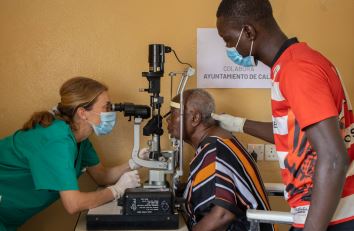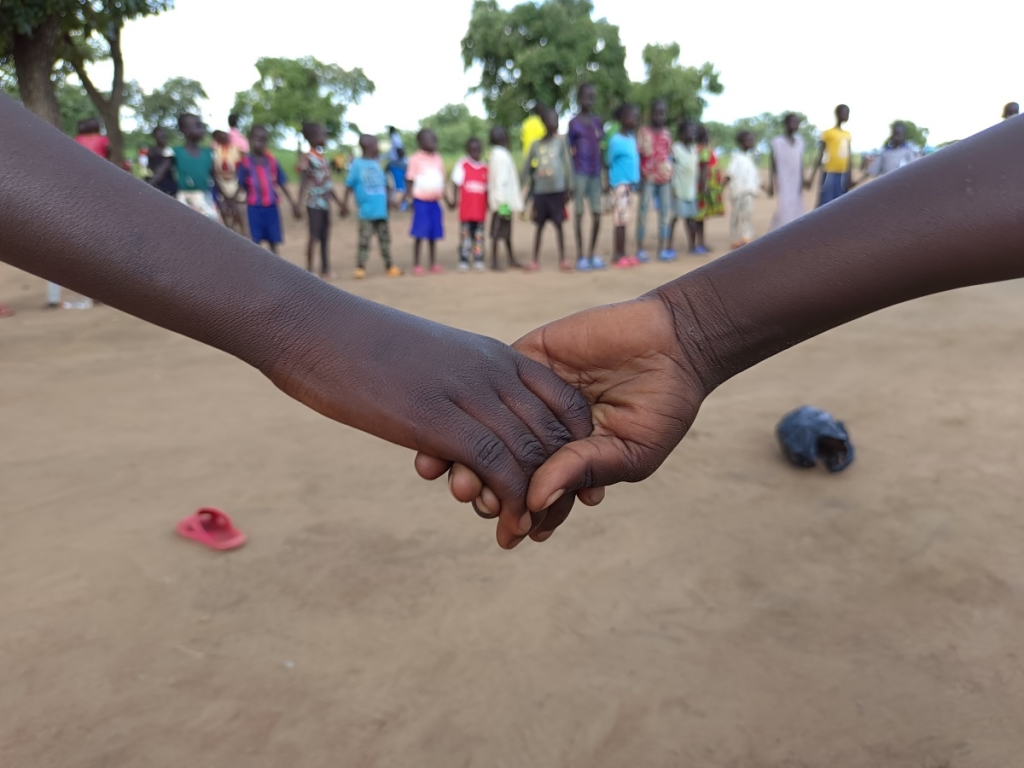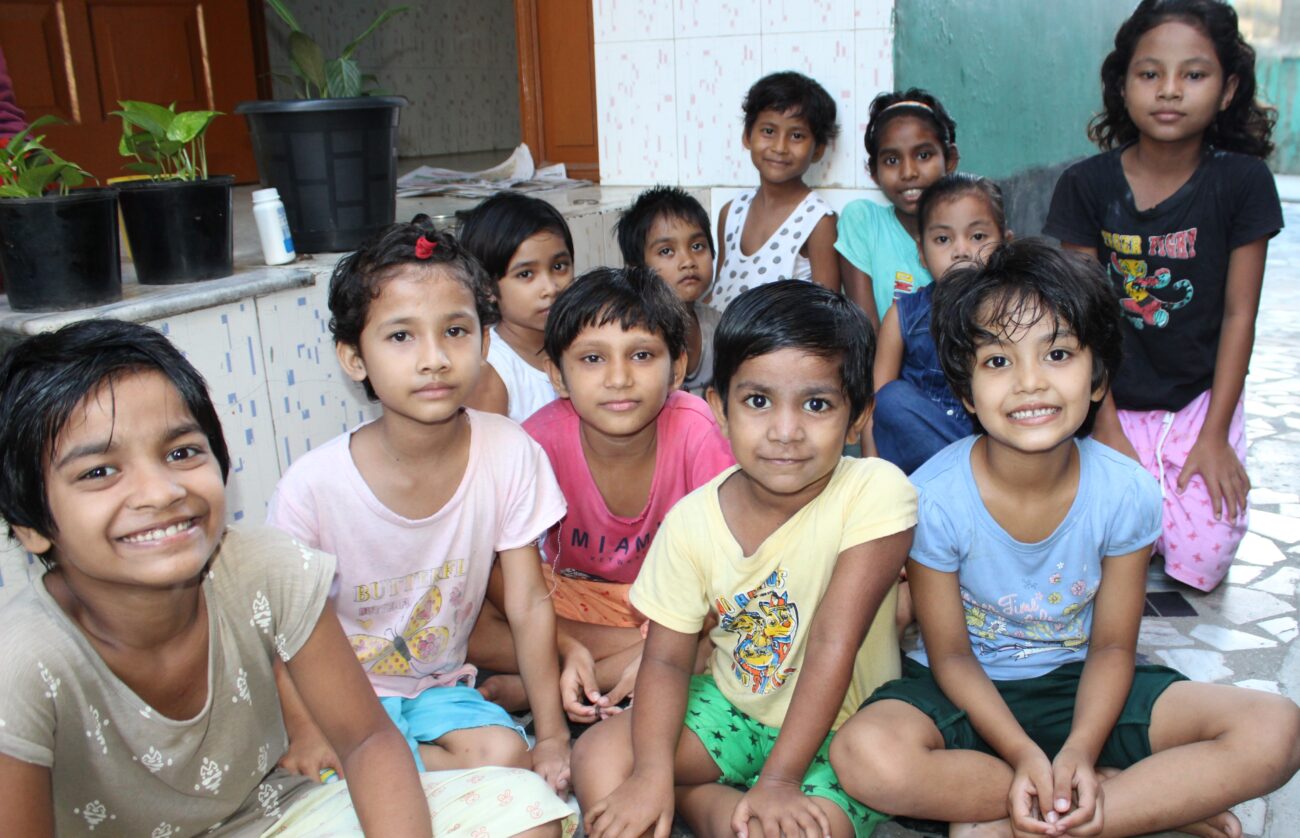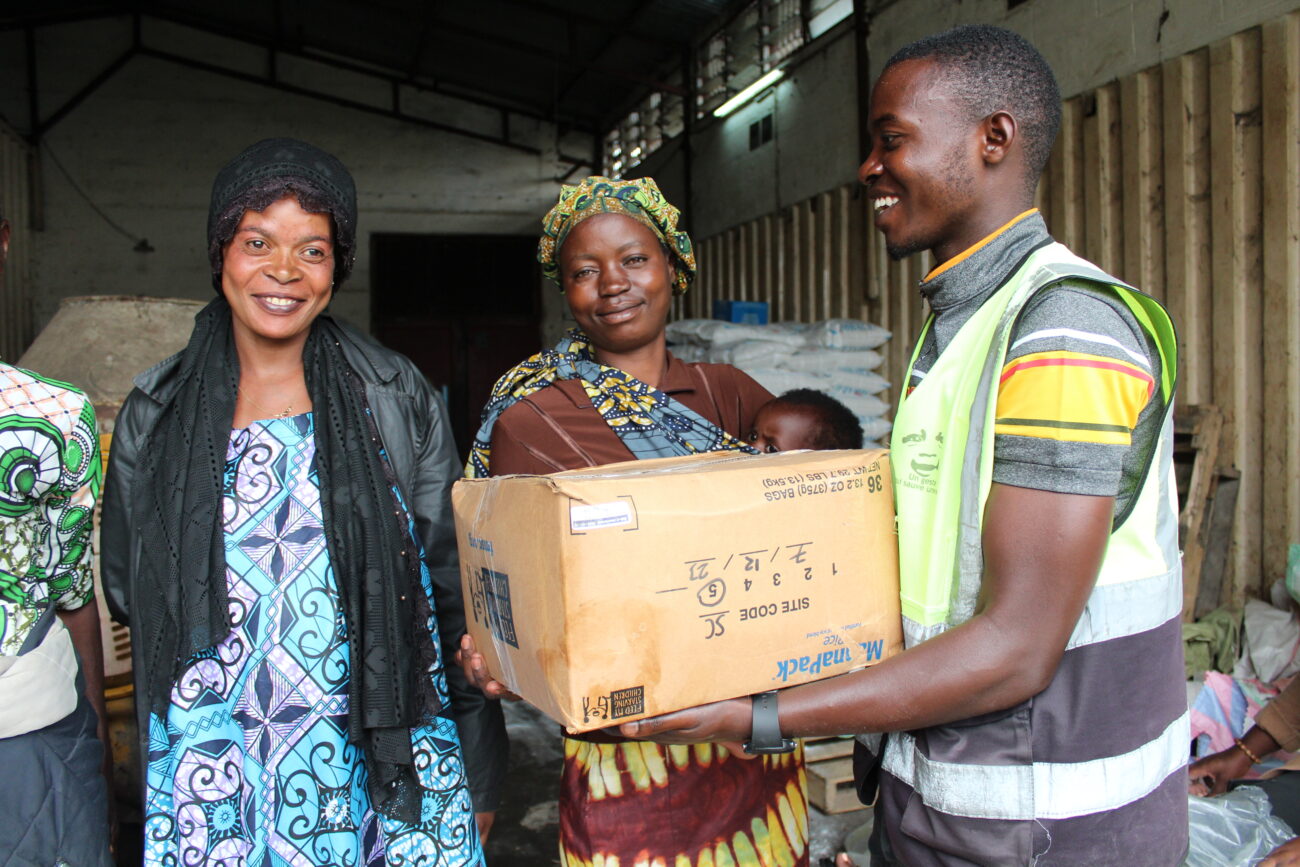WORLD HEALTH DAY: Salesian Missions highlights health programs for people in poverty
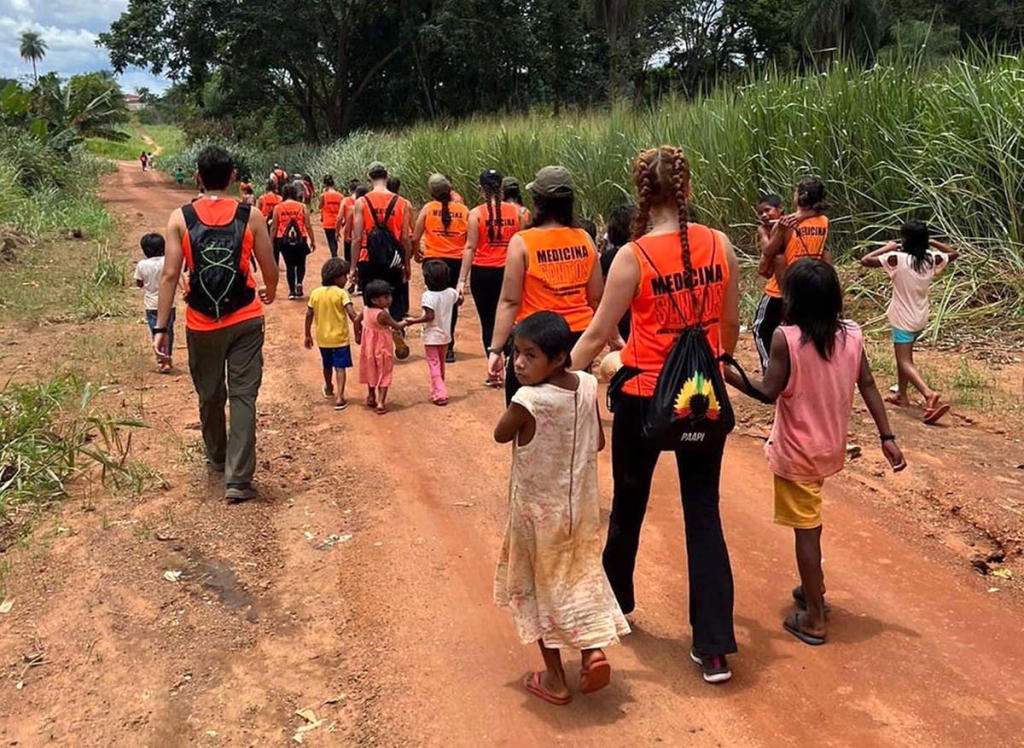
Salesian missionaries offer more than 150 medical clinics and hospitals around the globe
(MissionNewswire) Salesian Missions, the U.S. development arm of the Salesians of Don Bosco, joins humanitarian and other international organizations in honoring World Health Day on April 7. In 1948, the World Health Organization (WHO) held the First World Health Assembly and designated the day to mark the founding of WHO. The first World Health Day was held in 1950. Every year it serves as an opportunity to draw worldwide attention to a particular theme of importance related to global health.
The theme for this year is “My health, my right” and “champions the right of everyone, everywhere to have access to health services, education, and information, as well as safe drinking water, clean air, good nutrition, quality housing, decent working and environmental conditions, and freedom from discrimination.”
Salesian missionaries offer more than 150 medical clinics and hospitals in mostly rural areas around the globe that serve a wide range of medical care needs. In many countries with Salesian programs, dental care and other necessary health services are offered to poor youth and their families who might otherwise have no access to health care.
“While education is our priority, Salesians serve the whole person by making sure that health needs are met and this is especially important in communities where there are few resources,” said Father Michael Conway, director of Salesian Missions. “Salesian medical clinics meet a range of health needs from providing preventive health screening to addressing ongoing health issues and ensuring people have the medication they need.”
On World Health Day, Salesian Missions is proud to highlight health programs that provide critical services to those living in poverty.
BRAZIL
Salesian centers in Sangradouro and Meruri, Brazil, were host to 34 medical students and doctors from the University Center Faculty of Medicine of Santos (UNILUS). This was the 15th expedition of the Academic Project of Assistance to Indigenous Peoples (PAAPI), which started in 2009. The project provided medical clinics for Xavante Indigenous people in Sangradouro and Bororo Indigenous people in Meruri.
The students are in their first to third year of medical school and were supported by doctors and teachers. Along with the Salesians, they organized a health center and facilitated activities for the children including sports and painting.
Salesian missionaries in Brazil provide education, workforce development and social services throughout the country. Missionaries help to meet the basic needs of poor youth, including street children, and provide them with an education and life skills to gain employment, break the cycle of poverty, and lead productive lives.
DR CONGO
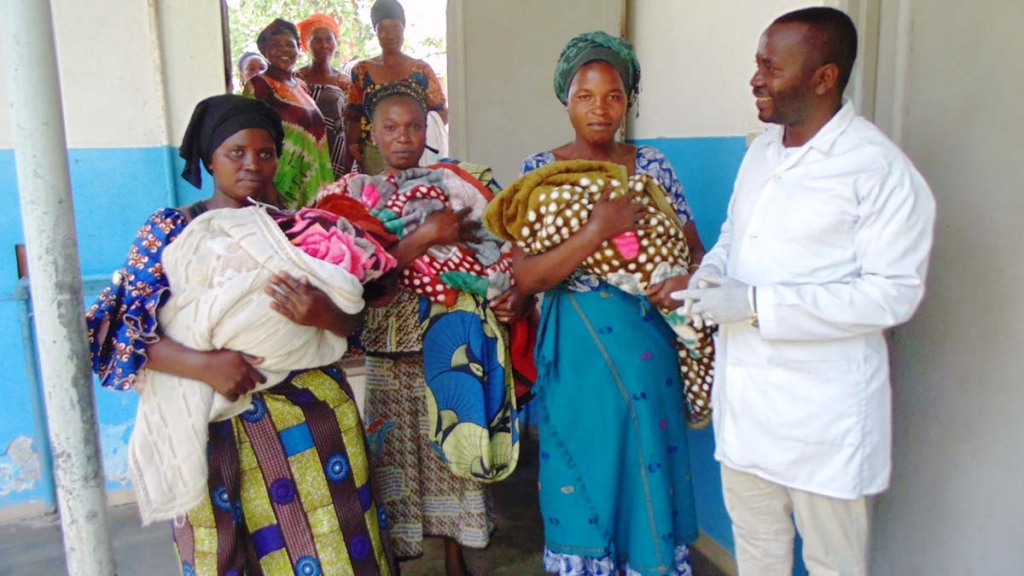
The Don Bosco Ngangi medical center has been transformed into an emergency hospital due to increasing needs in the Democratic Republic of the Congo.
While the province of North Kivu in the Democratic Republic of the Congo* is still facing ongoing clashes that have been displacing thousands of people, Salesian missionaries continue with their work. The medical center at Don Bosco Ngangi in Goma delivered triplets for Dorcas Ndibungo, who had a boy and two girls.
Ndibungo, age 36, has been at Don Bosco Ngangi since she was displaced in November 2022. She fled Kibumba village in the Nyiragongo territory north of Goma with her eight children. She has been seeking shelter at the center since then and was fortunate to have the medical center to aid in her pregnancy and delivery.
Initially set up to provide care for youth living at Don Bosco Ngangi, the medical center later began providing maternity, consultation, laboratory, hospitalization, prevention, pharmacy and nutrition services. This has been particularly important with the addition of 28,000 people who have sought shelter on the center’s fields.
The medical center has been transformed into an emergency hospital for thousands who have been displaced. The medical team includes a doctor, a laboratory technician, a physiotherapist, a clinical psychologist, two hygienists and five nurses. The team is providing both preventive and medical care for those who have been injured and have emergencies.
SIERRA LEONE
Located in Sierra Leone’s capital city of Freetown, Don Bosco Fambul is one of the country’s leading child-welfare organizations. It has been on the forefront of efforts to help save young women who have faced abuse and prostitution and to rehabilitate street children and reunite them with their families.
Don Bosco Fambul operates a medical clinic that provides services to youth in its program and members of the community. The clinic was officially certified and verified as a hospital by the government of Sierra Leone. This enables the clinic to do even more for the community and expands medical services to those in poverty. Donors provided the equipment necessary to help the clinic pass the certification.
The organization has also increased medical outreach to the community. Don Bosco Fambul hosted two specialists who provided medical assistance to the new Don Bosco Fambul hospital. A partner organization, ACISS from Malaga, Spain, visited the hospital with a team of medical practitioners. They offered free medical surgeries, focusing on hernias, hydroceles and lipomas, for 41 patients who are now fully recovered.
In addition, vision specialists and dentists provided a one-week health outreach at the hospital. They focused on giving community members free cataract operations and eye and dental exams.
SOUTH SUDAN
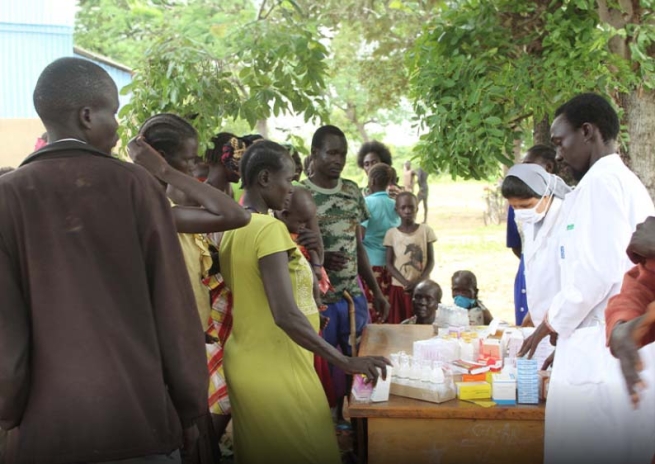
Don Bosco Health Clinic in Juba, South Sudan, will have improved equipment and supplies with new funding.
Salesian missionaries with the Don Bosco Health Clinic Gumbo, located in Juba, South Sudan*, are appreciative of the support provided by the Ordesa Foundation, an organization in Spain. With the foundation’s support, the Don Bosco Health Clinic will have improved equipment and s
upplies available for diagnosis and treatment to enable doctors to better care for those people who have been displaced by violence in the country.
Since 2002, the Ordesa Foundation has been committed to the improvement of the living conditions and the nutrition and health of children — especially newborns, infants and children in the first years of life.
In South Sudan, many of the health centers are not functioning and people may live miles away from a health care center, making access to care difficult. The clinic was founded in 2012 to treat internally displaced people, especially children suffering from malnutrition. In addition, Salesians offer mobile clinics in surrounding areas. With the support they received from the Ordesa Foundation, Salesians will be able to aid more than 87,500 women, 12,000 children under the age of 14 and almost 6,000 others.
###
Sources:
BRAZIL: Medical clinics reach Indigenous communities/ANS Photo (usage permissions and guidelines must be requested from ANS)
DR CONGO: Displaced people obtain medical care/ANS Photo (usage permissions and guidelines must be requested from ANS)
SIERRA LEONE: Don Bosco Fambul provides life-changing medical care/Photo courtesy of Don Bosco Fambul
SOUTH SUDAN: Over 100,000 people to receive better health care/ANS Photo (usage permissions and guidelines must be requested from ANS)
*Any goods, services, or funds provided by Salesian Missions to programs located in this country were administered in compliance with applicable laws and regulations, including sanctions administered by the U.S. Department of Treasury’s Office of Foreign Asset Control.


